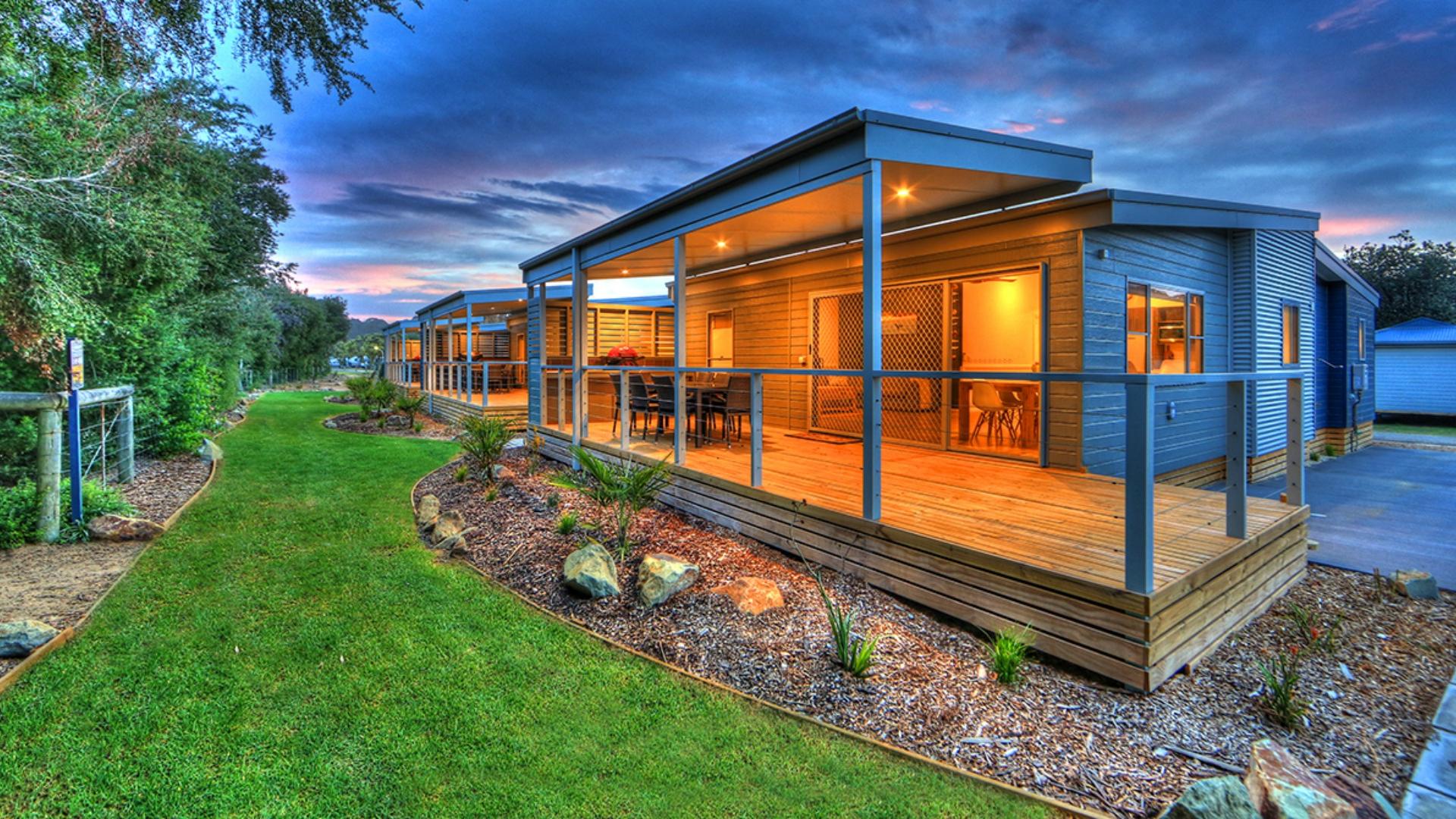As hoteliers know, working in hospitality isn’t always glamorous. Sure, there are breathtaking views to enjoy when you work at a mountain resort or beachfront villa, but there are also significant challenges to overcome on a daily basis.
Hoteliers face a range of challenges that can impact staff morale, efficiency, and retention. From recruitment difficulties and training gaps to managing burnout and adapting to new technologies, the hurdles are numerous. This article explores the common challenges hotel staff face and offers practical solutions to overcome them, ensuring a happier, more motivated workforce and, ultimately, a more successful hotel.
So you manage a hotel? We make it easy
Newbook is your all in one hotel management software. Talk to us today to learn how you can improve operations and increase bookings for your hotel.


7 Hotel Staff Challenges (& How to Overcome Them)

Managing hotel staff positions effectively is crucial for ensuring smooth operations and delivering exceptional guest experiences. However, various challenges can arise, from recruitment and training to managing burnout and turnover. Below, we explore these hotel staff challenges in detail and provide strategies to overcome them, ensuring your hotel runs efficiently and your staff remain motivated.
1. Hotel Staff Recruitment
Challenge: Recruiting the right talent in the hospitality industry can be difficult, especially given the high demand for skilled workers, and the ongoing labor shortage. The challenge is not just finding candidates with the right experience to fill key hotel staff positions but also retaining those employees long-term.
How to Overcome It: To attract top talent, create a strong employer brand that highlights your hotel as a desirable place to work. Use targeted recruitment strategies such as attending hospitality job fairs, partnering with local hospitality schools, and leveraging social media platforms like LinkedIn. Offering competitive compensation packages and clear career progression opportunities can also make your hotel more appealing to potential employees.
Tips for Attracting and Retaining Staff
Offer Competitive Compensation and Benefits
One of the most effective ways to attract staff is by offering a compensation package that stands out in the competitive hospitality market. This includes not just a competitive salary but also additional benefits that can make your business more appealing.
- Competitive Salaries: Ensure your pay rates are in line with or above industry standards for your area. Regularly review and adjust salaries to reflect market trends and inflation.
- Benefits: Offer benefits such as health insurance, retirement plans, and paid time off. Consider adding perks like staff meals, discounts on hotel services, or wellness programs.
- Bonuses and Incentives: Introduce performance-based bonuses, referral bonuses for bringing in new employees, or incentives for meeting targets. These can motivate staff to perform well and stay with the company longer.
Create a Positive Work Environment
A supportive and positive workplace culture is key to successful hotel staff recruitment and retention. Staff who feel valued and respected are more likely to stay loyal to your business.
- Respect and Inclusion: Promote a culture of respect and inclusivity where all employees feel welcomed and valued. This includes addressing any issues of discrimination or harassment promptly and effectively.
- Work-Life Balance: Encourage a healthy work-life balance by offering flexible scheduling, adequate time off, and managing workloads to prevent burnout. Employees who can balance their work and personal lives are less likely to seek employment elsewhere.
- Team Building: Foster a sense of camaraderie among your staff through regular team-building activities, social events, and opportunities for employees to collaborate on projects. A strong team spirit can enhance job satisfaction and retention.
Invest in Employee Development and Career Growth
Providing opportunities for career advancement is crucial in retaining ambitious employees who are looking to grow within the industry.
- Training and Development: Offer regular training programs to help staff develop new skills and stay updated on industry trends. This could include workshops, online courses, or certifications.
- Clear Career Paths: Outline clear paths for career progression within your business. Show employees how they can advance from entry-level positions to higher roles, and provide the necessary support and mentoring to help them achieve their goals.
- Promote from Within: Whenever possible, promote internally rather than hiring externally. This not only motivates current employees to excel but also reduces the costs and time associated with external recruitment.
Enhance Recruitment Strategies
To attract the right talent, you need to have a robust recruitment strategy that reaches a wide audience and highlights the benefits of working for your business.
- Employer Branding: Develop a strong employer brand that showcases your business as a desirable place to work. Highlight your company culture, values, and employee benefits on your website and social media platforms.
- Diverse Recruitment Channels: Use a variety of recruitment channels, including job boards, social media, hospitality job fairs, and partnerships with local hospitality schools. This helps you reach a broader pool of candidates.
- Referral Programs: Implement an employee referral program where current staff can recommend potential hires. This not only helps you find candidates who are a good cultural fit but also boosts morale as employees feel involved in building the team.
Recognize and Reward Employees
Recognition and rewards go a long way in making employees feel appreciated and valued, which is crucial for retention.
- Regular Feedback and Recognition: Provide regular feedback and recognize employees for their hard work and achievements. This could be through formal programs like “Employee of the Month” or informal acknowledgments in team meetings.
- Rewards Programs: Implement rewards programs where employees can earn points or bonuses for exceptional service, innovation, or teamwork. These rewards can be in the form of gift cards, extra days off, or other perks.
- Celebrate Milestones: Celebrate work anniversaries, birthdays, and personal milestones. Small gestures like this show that you care about your employees beyond just their professional roles.
Focus on Employee Well-being
Prioritizing the physical and mental well-being of your staff is essential for retention. A healthy, happy workforce is more likely to stay with your business long-term.
- Health and Wellness Programs: Offer wellness programs that include gym memberships, yoga classes, or mental health support. Encourage healthy habits and provide resources to help employees manage stress.
- Support Systems: Ensure there are support systems in place for employees facing personal or professional challenges. This could include access to counselling services, employee assistance programs, or peer support groups.
- Safe Working Environment: Maintain a safe and healthy working environment by adhering to all health and safety regulations. This includes providing the necessary training and equipment to prevent accidents and injuries.
2. Hotel Staff Training

Challenge: Even the best recruits need proper training to align with your hotel’s standards and deliver consistent service. Inconsistent or inadequate training can lead to mistakes, guest dissatisfaction, and a lack of confidence among staff.
How to Overcome It: Develop a comprehensive hotel staff training program that covers all aspects of the job, from guest interaction to emergency procedures. Utilize a mix of training methods, including hands-on practice, video tutorials, and mentorship programs. Regular refresher courses should be mandatory to keep all staff up-to-date with any changes in hotel policies or procedures. Additionally, consider using e-learning platforms that allow staff to learn at their own pace, ensuring they fully grasp the material.
Tips for Training Hotel Employees Effectively
| Training Strategy | Key Actions |
| 1. Develop a Comprehensive Training Program | – Create a detailed training program covering all job aspects. – Ensure familiarity with SOPs. – Customize training modules for different roles. |
| 2. Use a Variety of Training Methods | – Implement on-the-job training by shadowing experienced staff. – Use e-learning for policies and safety procedures. – Conduct workshops and role-playing exercises. |
| 3. Provide Ongoing Training and Development | – Offer refresher courses regularly. – Encourage cross-training for flexibility. – Support staff in pursuing professional development opportunities. |
| 4. Set Clear Expectations and Goals | – Provide detailed job descriptions. – Establish and regularly review performance metrics (KPIs). |
| 5. Incorporate Feedback and Continuous Improvement | – Gather and act on feedback from employees and guests. – Continuously update training programs based on feedback. |
| 6. Mentorship and Support | – Pair new hires with experienced staff as mentors. – Implement a buddy system. – Schedule regular check-ins during the training period. |
| 7. Utilize Technology and Hotel Management Software | – Use training videos and online modules for consistency. – Train staff on hotel management software like Newbook. |
| 8. Recognize and Reward Progress | – Implement recognition programs such as “Employee of the Month.” – Offer incentives like bonuses, additional time off, or career advancement opportunities for those who excel in training. |
3. Hotel Staff Scheduling
Challenge: Creating efficient staff schedules that meet the operational needs of the hotel while also respecting employees’ work-life balance can be complex. Poor scheduling can lead to overstaffing, understaffing, or burnout.
How to Overcome It: Implementing hotel management software like Newbook can greatly simplify the scheduling process. Newbook allows managers to automate scheduling, taking into account peak times, staff availability, and labor laws.
Tips for Managing Burnout in Hotel Staff
| Tips for Managing Burnout | Key Actions |
| 1. Foster a Positive Work Environment | – Promote Work-Life Balance: Encourage breaks, use of vacation time, and avoid excessive overtime. Implement flexible scheduling. – Recognition and Reward: Regularly acknowledge and reward employees’ efforts. – Encourage Teamwork: Create a supportive atmosphere where team members help each other. |
| 2. Provide Proper Training and Development | Onboarding and Ongoing Training: Ensure thorough training from the start and continuous learning opportunities. – Career Development Opportunities: Offer opportunities for advancement and professional growth. |
| 3. Monitor Workload | – Fair Distribution of Tasks: Ensure workloads are distributed evenly among staff. – Staffing Levels: Maintain adequate staffing levels to prevent overworking employees. |
| 4. Create Open Lines of Communication | – Regular Check-Ins: Hold one-on-one meetings with staff to discuss workload and well-being. – Anonymous Feedback Channels: Provide a way for staff to voice concerns anonymously. |
| 5. Promote Physical and Mental Health | – Wellness Programs: Offer programs that promote physical and mental well-being, such as gym memberships, yoga sessions, or mindfulness workshops. – Access to Mental Health Resources: Provide access to counselling services or employee assistance programs (EAPs). |
4. Managing Unhappy Guests
Challenge: No matter how well your hotel operates, there will be times when guests are unhappy. Whether due to unmet expectations or unforeseen issues, handling unhappy guests effectively is crucial to maintaining your hotel’s reputation.
How to Overcome It: Establish a clear policy for handling guest complaints that empowers staff to address issues promptly and effectively. Train your team in conflict resolution techniques, emphasizing the importance of empathy and active listening. Provide guidelines for offering compensation, such as complimentary services or discounts, to appease guests. Additionally, managing unrealistic expectations from the start—by clearly communicating what guests can expect during their stay—can prevent dissatisfaction. Encourage staff to under-promise and over-deliver, ensuring guests are pleasantly surprised rather than disappointed.
5. Hotel Staff Turnover
Challenge: High turnover rates in the hotel industry can lead to increased recruitment and training costs, as well as disruptions in service quality. The cost of turnover is not just financial; it also impacts team morale and consistency in guest experiences.
How to Overcome It: To reduce turnover, focus on employee retention strategies such as offering competitive pay, providing opportunities for career advancement, and recognizing and rewarding good performance. Foster a positive work environment where employees feel valued and part of a team. Conduct exit interviews to understand why employees leave and use this feedback to make necessary improvements.
Tips for Dealing with High Hotel Staff Turnover
Improve Recruitment Practices
- Hire the Right Fit: Focus on recruiting individuals who align with your hotel’s culture and values. Look for candidates with not just the right skills but also the right attitude and commitment.
- Thorough Onboarding: A comprehensive onboarding process helps new hires feel welcomed and better prepared, reducing the likelihood of early turnover.
Offer Competitive Compensation and Benefits
- Market-Competitive Salaries: Ensure that your pay rates are competitive with the local market and the hospitality industry standards.
- Benefits and Perks: Offer attractive benefits, such as health insurance, retirement plans, and employee discounts. Consider additional perks like wellness programs, flexible scheduling, and bonuses.
Foster a Positive Work Environment
- Respect and Inclusion: Create a work culture where all employees feel respected and valued. Address any issues of discrimination or harassment promptly.
- Work-Life Balance: Encourage a healthy work-life balance by offering flexible scheduling and ensuring adequate time off. This helps prevent burnout and keeps staff engaged.
Provide Opportunities for Growth
- Career Development: Invest in training and development programs that help employees advance their careers. Clear paths for promotion can increase motivation and reduce turnover.
- Internal Promotions: Whenever possible, promote from within to show employees that there are growth opportunities available to them.
Recognize and Reward Employees
- Regular Recognition: Acknowledge and reward employees for their hard work and achievements, both formally and informally. This could be through recognition programs, bonuses, or public appreciation.
- Incentive Programs: Implement incentive programs that reward employees for meeting specific goals or delivering exceptional service.
Enhance Employee Engagement
- Open Communication: Maintain open lines of communication where employees can voice their concerns and provide feedback. Regularly check in with staff to understand their needs and challenges.
- Team Building: Organize regular team-building activities and social events to foster camaraderie and a sense of belonging among employees.
Conduct Exit Interviews
- Understand Why Employees Leave: Conduct exit interviews to gather insights on why employees are leaving. Use this feedback to identify areas for improvement in your management practices, work environment, or benefits package.
Implement Flexible Scheduling
- Adapt to Employee Needs: Offer flexible scheduling options to accommodate the personal lives of your employees, which can help reduce stress and improve job satisfaction.
Improve Management Practices
- Effective Leadership: Ensure that managers are trained to lead effectively, with a focus on empathy, clear communication, and conflict resolution. Poor management is often a key reason for high turnover.
- Fair Treatment: Treat all employees fairly and consistently, with clear policies and expectations.
Focus on Employee Well-Being
- Support Systems: Provide support for mental and physical well-being, such as access to counselling services or wellness programs.
- Safe Work Environment: Adhere to health and safety regulations and provide necessary training and resources to maintain a safe and healthy work environment.
6. Communication Gaps

Challenge: Miscommunication between hotel staff can lead to operational inefficiencies, errors, and a negative guest experience. Communication gaps are often due to a lack of clear processes or inadequate communication tools.
How to Overcome It: Implement a centralized communication platform that all staff can access, such as a hotel management system with built-in messaging features. Regular team meetings and briefings help ensure everyone is aligned on daily tasks and objectives. Encourage an open communication culture where staff feel comfortable raising concerns or asking questions. Additionally, visual communication aids like bulletin boards or digital screens in staff areas can help reinforce key messages and updates.
Implement a Centralized Communication Platform
- Use a Property Management System: A centralized platform like a hotel property management system with built-in messaging features can help streamline communication. Staff can receive updates, tasks, and important information in real-time, reducing the chances of miscommunication.
- Digital Noticeboards: Use digital noticeboards or an internal communication app where all staff can access important announcements, schedules, and updates.
Regular Team Meetings
- Daily Briefings: Hold daily briefings at the beginning of each shift to review the day’s tasks, special requests, and any important updates. This ensures that everyone is on the same page.
- Departmental Meetings: Conduct regular meetings with each department to discuss ongoing issues, provide updates, and gather feedback from staff.
Clear and Concise Communication
- Use Simple Language: Ensure that all instructions and communications are clear and easy to understand, especially for staff who may speak different languages.
- Written Communication: Follow up verbal instructions with written communication, such as emails or messages, to reinforce the information and provide a reference point.
Encourage Open Communication
- Open-Door Policy: Encourage an open-door policy where staff feel comfortable approaching managers with questions, concerns, or suggestions without fear of reprimand.
- Anonymous Feedback Channels: Provide a way for staff to share concerns or suggestions anonymously if they are uncomfortable speaking up directly.
Provide Communication Training
- Effective Communication Workshops: Offer training sessions focused on effective communication skills, including active listening, conflict resolution, and clear messaging.
- Cultural Sensitivity Training: If your staff is diverse, provide training on cultural sensitivity and communication styles to reduce misunderstandings and foster a more inclusive work environment.
Use Visual Aids
- Signage and Posters: Use visual aids such as signs, posters, and diagrams in common areas to reinforce important messages and instructions.
- Visual Communication Tools: For complex instructions, consider using flowcharts or infographics to help staff understand processes more easily.
Set Up Regular Check-Ins
- One-on-One Meetings: Schedule regular one-on-one meetings between staff and their supervisors to discuss any issues, provide feedback, and ensure ongoing communication.
- Performance Reviews: Use performance reviews not only to evaluate work but also to discuss communication issues and how they can be improved.
Standardize Procedures
- Standard Operating Procedures (SOPs): Ensure that all staff are familiar with the hotel’s SOPs, which should outline the correct procedures for daily tasks. Consistency in processes reduces confusion and communication errors.
- Training Manuals: Provide detailed training manuals that staff can refer to when needed, helping to clarify expectations and procedures.
Leverage Technology for Multilingual Staff
- Translation Tools: Use translation apps or devices to assist communication between staff who speak different languages. This can be particularly helpful in diverse teams where language barriers might exist.
- Multilingual Support Materials: Provide written instructions, signs, and training materials in multiple languages to accommodate all staff members.
Encourage Feedback and Continuous Improvement
- Solicit Feedback: Regularly ask staff for feedback on communication practices and make adjustments based on their input.
- Continuous Improvement: Treat communication as an evolving process. Regularly update and improve communication strategies as the team and hotel operations grow.
7. Adapting to New Technology
Challenge: The rapid pace of technological change in the hospitality industry can be daunting for hotel staff, particularly those who are less tech-savvy. Resistance to new technology can hinder its effective implementation, leading to inefficiencies.
How to Overcome It: Introduce new hospitality technology gradually and ensure that all staff receive comprehensive training on how to use it. Highlight the benefits of the technology to help staff understand how it will make their jobs easier, such as reducing manual tasks or improving guest service. Offer ongoing support and resources, such as help desks or peer mentors, to assist staff in adapting to new systems. It’s also important to select user-friendly technology that integrates smoothly with existing processes to minimize disruption.
Hotel Staff Management Solutions for Happy Hotel Staff: Newbook

One of the most effective ways to streamline staff management and improve employee satisfaction is by using advanced technology like Newbook’s property management software. Newbook integrates various aspects of hotel operations, from booking and guest communication to staff scheduling and task management, into a single, user-friendly platform.
Standout features of Newbook include:
- Property Management Software (PMS): The backbone of your business, providing essential tools to manage resort operations and customer interactions seamlessly.
- Channel Manager: Expand your reach by listing with Online Travel Agencies (OTAs). Newbook’s channel manager automatically syncs your rates and inventory across all platforms in real-time, eliminating the need for manual updates.
- Online Booking System: Facilitate direct bookings on your website with an intuitive and comprehensive booking engine. Features include interactive maps, integrated upselling options during the booking process, and alternative date suggestions when preferred accommodations are unavailable.
- Centralized Reservation System: Streamline the management of all reservations by consolidating direct and OTA bookings into one centralized system for easy oversight.
- Self-Service Kiosks: Offer guests the flexibility to check in or out at their convenience with self-service kiosks, ideal for properties without 24/7 front desk coverage.
- Key Café: Perfect for resorts with cabins or villas, the Key Café enables guests to retrieve their accommodation keys at their convenience, ensuring a smooth check-in process.
By utilizing Newbook, hotels can not only streamline their operations but also create a more supportive and efficient work environment, contributing to the overall happiness and well-being of their staff. This, in turn, leads to better service, higher guest satisfaction, and a more successful hotel business.
So you manage a hotel? We make it easy
Newbook is your all in one hotel management software. Talk to us today to learn how you can improve operations and increase bookings for your hotel.


Conclusion
Successfully managing hotel staff requires addressing a wide array of challenges, from recruitment and training to ensuring work-life balance and embracing new technology. By implementing the strategies outlined in this article, hoteliers can create a supportive and efficient work environment that not only enhances staff satisfaction but also boosts overall hotel performance. Leveraging tools like Newbook’s property management software can further streamline operations, making it easier to manage everything from scheduling to guest communication. By prioritizing staff well-being and efficiency, hotels can foster a culture of excellence that leads to happier employees, satisfied guests, and long-term success.

